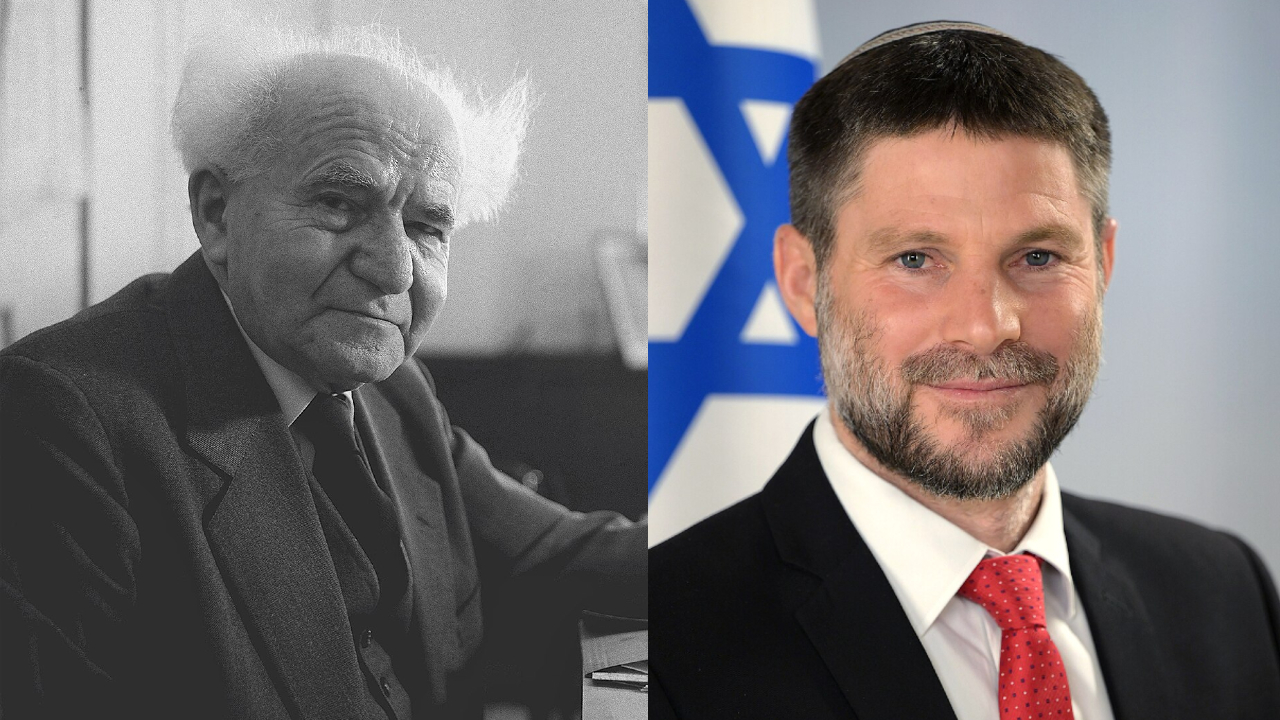When I first met Amos Oz amid the 1982 Lebanese War, which we both condemned, he was an internationally renowned novelist and co-founder of the “Peace Now” movement. I was one of the translators of his book on the settler-induced divides, In the Land of Israel (1983). What we talked about were his writings in 1967, when he first sensed what loomed ahead, describing the Jewish settlers as “neo-Nazis.”
For those who identify with the painful legacy of Jewish history and the quest for social justice, but not with ethnic supremacy doctrines and colonial expansion, the 1967 Six-Day War posed a challenge. Occupation made Oz uneasy, not triumphant. Until then, Israel had fought for its survival. Now it prepared on colonial expansion.
The long quest for “Living Space”
Just weeks after the war, Defense Minister Moshe Dayan reneged on the idea of returning territory in exchange for peace. The terms of his address left Oz breathless. He did not translate Dayan’s term “living space” in Hebrew. He used its German translation, “Lebensraum,” Nazi Germany’s pretext for expansion and atrocities in occupied Eastern Europe.
It was a term that should have raised harrowing memories. Yet Dayan used it as a pretext for colonization. As Oz saw it:
Living space means one thing: disenfranchising the foreigner, the inferior “savage” and making place for the superior and the civilized—the powerful….
Not for that did we fight. Israel’s living space is entirely before it: the wastelands of the Galilee and the Negev. We have no living space in the West Bank of the Jordan, because it is populated by a nation living on its land, even though it is currently a nation routed in battle. The expression “living space” defiles our war. Our enemies were seemingly correct when they suspected … that behind the peace declarations upon our tongues lurked a need for expansion and annexation.
Fighting for existential survival is one thing. Fighting for colonial expansion and annexation is something very different, whether in the name of national security, divine redemption or Lebensraum. The difference between these two stances reflects the slide of the pre-1967 era labor Zionism into the revisionist Zionism that has prevailed since then. The transition has gone hand in hand with very different views on the state of Israel, secularism and fundamentalism, as well as on democracy and autocracy – as codified by the codification of an ominous nation bill.

Left – Dayan as Chief of the General Staff https://en.wikipedia.org/wiki/Moshe_Dayan
Right – Oz in 1965 https://en.wikipedia.org/wiki/Amos_Oz
Origins of the Jewish nation-state bill
The legislative history of the Jewish nation-state bill began in 2011, when the then-chair of the Knesset’s foreign affairs committee, Avi Dichter, the former director of Shin Bet who had been charged with extrajudicial killings and human rights violations during the Second Intifada, filed the Nation Bill. This was a proposal to define the nature of the state of Israel as the state of the Jewish people. Effectively, it was an effort to redefine the designation “Jewish and democratic state” in the Israeli basic laws.
Dichter was known for being blunt. After October 7, he endorsed the forced displacement of civilians from the northern Gaza Strip, acknowledging that “we are now rolling out the Gaza Nakba … Gaza Nakba 2023. That’s how it’ll end.” For its part, it was the Nation Bill that has fostered the way to Israeli ethnic cleansing and genocidal atrocities since the fall of 2023.
In the original legislation, “Jewish” highlighted the unique nature of the Israeli state, while “democratic” underscored the secular nature of the state. From the beginning, there has been a tension between these two terms. To some in the right-wing Likud coalition, Israel is Jewish first and only then democratic.
In 2017, a special joint committee headed by MK Amir Ohana was formed to champion the bill. Supporting the exemption of Netanyahu from prosecution in the corruption investigations, Ohana had been in the PM Netanyahu’s inner circle. Upon presenting the reformed bill, he described it as “the law of all laws.”
It is the most important law in the history of the State of Israel, which says that everyone has human rights, but national rights in Israel belong only to the Jewish people. That is the founding principle on which the state was established.
There were Orwellian echoes in the idea that everyone has human rights, but some have more of them than others.
Despite its potential harm to Israeli democracy and minorities, particularly its Arab citizens, the reformed bill was approved in 2018, just half a decade before October 7. Most Israelis supported the law, while a third opposed it. However, most Israelis also felt that equality for all Israeli citizens should have been explicitly covered by law.
In the Knesset, the Israeli parliament, the Arab members of the Joint List tore the printed text of the law while decrying “Apartheid” in the Knesset. The PLO secretary-general Saeb Erekat called it a “dangerous and racist law” which “officially legalizes apartheid and legally defines Israel as an apartheid system.”

Poster for the 2009 Israeli Apartheid Week, designed by Carlos Latuff
Source: Wikipedia
https://commons.wikimedia.org/wiki/File:Israeli_Apartheid_Week_2009_poster.jpg
But to the far-right Messianic Jews, the new bill was a window of opportunity. They dream of making the Judaic halakha Israel’s legal code. Among others, Bezalel Smotrich has long campaigned for the Ministry of Justice “to restore the Torah justice system.”
During this legal charade, both Washington and Brussels expressed their concerns and then did what they have done consistently in the past two decades – looked the other way.
Israel’s “Herrenvolk democracy”
Not every Israeli agreed with such views. But few criticized them as vehemently as the former deputy mayor of Jerusalem, Meron Benvenisti, who warned that Israel had become a “a master-nation democracy; in German, a ‘Herrenvolk democracy.’” As he put it, “We are a country that behaves like a full-blooded democracy, but we have a group of serfs, the Arabs, to whom we do not apply democracy. The result is a situation of extreme inequality.”
Meaning the “master race,” the term Herrenvolk originated from 19th century colonial discourse that legitimized colonialism and endorsed white Europeans’ supposed racial superiority. Herrenvolk democracy is a racial ideology that marked America’s segregationist South, apartheid South Africa, and the pre-1980 Rhodesia (present-day Zimbabwe). In such a sham democracy, only one ethnic group has voting rights, while another is disenfranchised. One ethnic group dominates, and the other is repressed.
Of course, none of this is the consequence of the Gaza War. Effectively, the supremacy doctrines were embraced with the birth of the Israeli state itself. Until recently, many attributed the fall of Israel mainly to the occupation of the Palestinian territories in the 1967 War and the subsequent expansion of Jewish settlements. Even though colonization and the settlements have played a central role in the conflict, they are its proximate effect.
As I show in The Fall of Israel, it is the ethnic expulsions of the Palestinian Arabs that is the modus operandi of the conflict – from the late 1940s to contemporary Gaza and the West Bank. Against the prevailing conventional wisdom, The Fall of Israel shows why the rise and fall of the two-state solution between the Israeli Jews and Palestinian Arabs is not a recent phenomenon, and how it actually had already unfolded in the mid-1950s – hence the eight decades of missed opportunities, lost peace prospects, and unwarranted “forever wars.”
Nonetheless, the supremacy doctrines consolidated after 1948 remained tacit until the Netanyahu cabinets since the late 1990s. And it was only in 2018 that the Nation Bill made these unspoken norms legally explicit. Such doctrines have proved very appealing to Israel’s religious, secular and settler Jewish supremacists, particularly but not exclusively to the Messianic far-right. In the long view, they are the net effect of the unease that Israel’s first Labor government had with an official constitution.
The long struggle over a Jewish Nation-State
In the UN partition plan of 1947, Israel had been defined as a “Jewish state.” The term was embraced a year later in its Declaration of Independence, which had no explicit reference to the term democratic, even if the principles it espoused – not the actual realities that ensued – could be characterized as “democratic.”
By contrast, the related term, “Jewish and democratic state” is far more recent. It was officially added in the amendment to Israel’s Basic Law: The Knesset, which was passed in 1985, officially legislated in 1992 and amended in 1994, typically, amid the peace process. But as that process crumbled, so has the idea of “Jewish and democratic state” eroded. By the 2014 Gaza War, Israel’s political institutions seemed to be under a process of erosion. In the occupied territories, democracy has been nonexistent almost from the beginning. Ruled by occupation force, Palestinians have minimal rights.
In the past, Israelis spent years in the military to protect the nation from existential threats. Today, they serve in order to prolong occupation that is posing an existential threat to Israel. What used to be a Jewish and democratic state is turning into a Judeo-state, with other minorities as de facto second citizens.
If the Israeli state is facing an existential risk, why was it ignored by its founding fathers? As Israel’s first prime minister, David Ben-Gurion had a critical role in setting up the newly created country’s institutions, infrastructure, and key policies. So, why did he not push for a strong constitution to ensure the rights of each and all? In part, this was due to disagreements among different political groups. The ultra-pragmatic founding father shunned the idea of an official, explicit constitution because it was likely to bring the tensions out in the open.
Moreover, Ben-Gurion thought that a formal constitution might permit the Supreme Court to overrule his centralized social-democratic policies and thus undermine his efforts at a majoritarian election system. He saw himself building a nation from scratch. He needed consolidated, centralized sovereignty to do the job. The end justified the means.
Ben-Gurion’s unintended consequences
What Ben-Gurion failed to foresee was that one day his adversaries, led by the successors of Menachem Begin and his Herut Party – Netanyahu’s ideological mentors – would exploit the loopholes that the Labor governments left behind, to remake the judiciary.
Worse, BG inadvertently contributed to such efforts. To stress sovereignty while blurring its content, he popularized the term mamlakhtiyut, which is typically translated as “statism” or “etatism,” both of which fail to convey the origins of the term. BG chose the term (Melech, lit. “King”) to associate the State of Israel with its glorious historical past as a biblical Hebrew kingdom.
By the same token, the term allowed him to distinguish between the “Jewish nation” and the formal Israeli state. Conversely, it has allowed his far-right-wing fans to link those two meanings by blurring the distinction. The net effect has been the ethnicization of the concept:
Jewish nation + Israeli state = Jewish nation state of Israel
Ben-Gurion seized mamlakhtiyut to associate but not to link modern sovereignty and statehood with the perceived glory of past Hebrew kingdoms. By contrast, the Messianic far-right seeks to link, not just to associate, the mythological past, the idealized present and the apocalyptic future. The terms are the same, but the coded meanings radically different. Stressing an exclusionary ethno-nationalism, the ensuing concept rejects all non-Jewish groups from its scope, including Israeli Arabs, Palestinians, and other non-Jewish minorities.

Left: David Ben-Gurion in 1960 https://en.wikipedia.org/wiki/File:David_Ben-Gurion_(D597-087).jpg Right:Bezazel Smotrich’s official portrait https://commons.wikimedia.org/wiki/File:Bezalel_Smotrich.jpg
Furthermore, as Ben-Gurion left the door open to a mystical, ethno-nationalist interpretation of Jewish sovereignty, his effort to avoid an explicit constitution went hand in hand with his reluctance to define Israel’s ultimate borders. He saw expansion as an instrument for national security, whereas his ethno-nationalist successors regard it as an inherent part of national redemption. He knew that the international community would oppose such a neo-colonial project. His ethno-nationalist successors couldn’t care less how the world sees their project. Since it is divinely ordered, secular international opposition is irrelevant.
It was this far-right, supremacist shade of Ben-Gurion’s notion that Netanyahu and his supporters seized in the 1995 campaign that fostered the incendiary atmosphere, which led to the assassination of Prime Minister Yitzhak Rabin. The slaying of Rabin was something that Netanyahu’s champions had touted openly, with Netanyahu’s tacit blessing, while shouting, “Bibi, Melech Yisra’el, Ḥai hai veqayam!” (David, King of Israel, lives and endures) – the chant that presumably initially praised David, the King of ancient Israel and Judah.
Postscript
In the mid-1970s, I met rabbi Meir Kahane, the Jewish-American apostle of hate preaching Jewish supremacy and ethnic cleansing, in Jerusalem. “Democracy is a goy thing,” he said. “It’s not for Jews. We have our torah, our Jewish laws. We have our Jewish state. There’s no place for Arabs here.”
Kahane is the ideological father of the contemporary far-right Messianic Jews in the Netanyahu cabinet. However, since Kahane’s racist objectives remain repulsive to many Israelis, they have been advanced through seemingly legal institutional changes in the past two decades.
These changes have escalated dramatically since early 2023 with the Netanyahu cabinet’s initiation of the highly divisive “judicial reforms” in a decisive effort to transform Israel from a secular Jewish democracy to a Jewish autocracy.
The author of The Fall of Israel (2024) and The Obliteration Doctrine (2025), his new book, Dr. Dan Steinbock is an internationally-renowned visionary of the multipolar world and the founder of Difference Group. He has served at the India, China and America Institute (US), Shanghai Institutes for International Studies (China) and the EU Center (Singapore). For more, see https://www.differencegroup.net
Building on my The Fall of Israel, this commentary is the first of a series on Israel’s path from democracy to autocracy.


